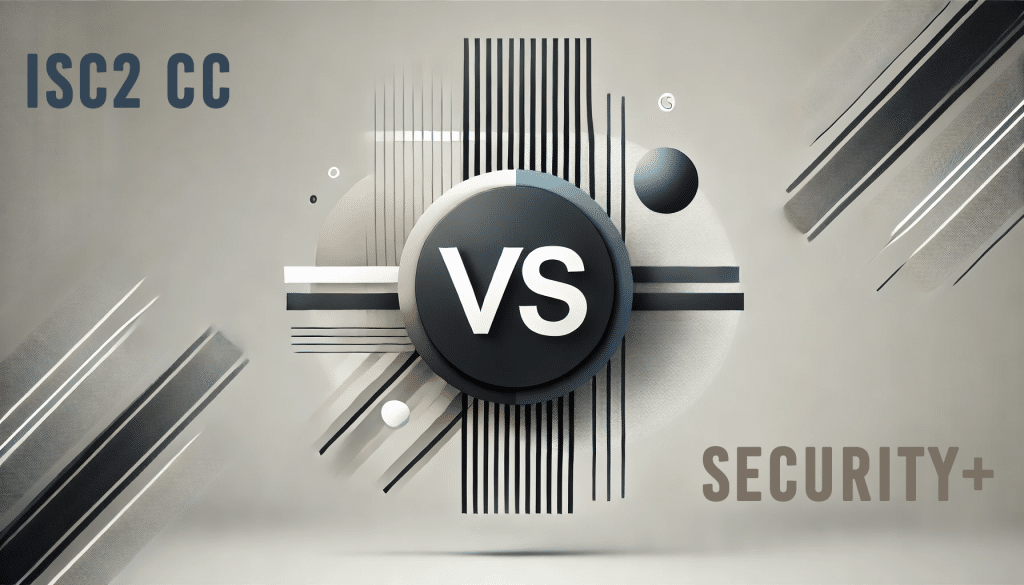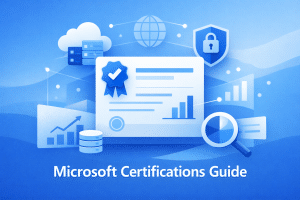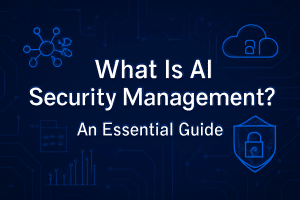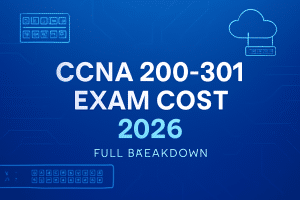If you’re thinking about stepping into the world of cybersecurity, choosing the right certification can feel overwhelming. Two popular options that often come up are ISC2 CC (Certified in Cybersecurity) and CompTIA Security+. Both are well-known and respected, but which one is the right fit for you?
The answer really depends on your career goals, current experience, and what you want to achieve in the cybersecurity field. Some people go for Security+ because it’s widely recognized and covers essential security concepts, while others choose ISC2 CC as it’s a great way to get started with ISC2’s certification path.
Let’s break down the key differences between these two certifications.
Comparison
| Aspect | ISC2 CC | Security+ |
| Overview | An entry-level cybersecurity certification offering fundamental knowledge and skills in security concepts and principles. | A globally recognized entry-level certification focusing on broader cybersecurity principles and practices. |
| Target Audience | Newcomers to the cybersecurity field looking to develop a solid foundation in security fundamentals. | Entry-level professionals seeking to establish a strong understanding of security best practices across various domains. |
| Focus Areas | Security Concepts Risk Management Threat Management Security Governance | Network Security Cryptography Threats and Vulnerabilities Access Control Risk Management |
| Prerequisites | No formal prerequisites; basic IT knowledge is helpful. | No formal prerequisites; basic understanding of IT is beneficial. |
| Domains Covered | Security Foundations Risk Management Incident Response | Threats, Attacks, and Vulnerabilities Identity and Access Management (IAM)Network Security Cryptography Risk Management |
| Exam Length | 100 questions; 2 hours. | 90 questions; 90 minutes. |
| Exam Format | Multiple-choice questions. | Multiple-choice and performance-based questions. |
| Exam Fee | $249 (USD). | $392 (USD). |
| Certification Maintenance | Valid for 3 years; requires continuing professional education (CPE) credits. | Valid for 3 years; requires Continuing Professional Education (CPE) credits. |
| Difficulty Level | Moderate; suitable for individuals starting their cybersecurity career. | Moderate; ideal for individuals looking for a comprehensive understanding of security concepts. |
| Industry Recognition | Growing recognition for entry-level security professionals. | One of the most recognized certifications in cybersecurity worldwide. |
| Job Roles | Security Analyst IT Support Specialist Network Administrator | Network Security Administrator Security Consultant Cybersecurity Analyst |
| Salary Impact | Entry-level salary range ($50,000–$80,000 annually). | Entry to mid-level salary range ($55,000–$85,000 annually). |
| Ideal For | Those new to cybersecurity, looking to build foundational security knowledge. | Those aiming to establish a broader understanding of security principles across multiple domains. |
| Vendor | ISC2 | CompTIA |
Choosing Between CompTIA Security Vs ISC2 CC: What Matters Most?
When stepping into cybersecurity, picking the right certification can make a big difference in shaping your career. ISC2 CC (Certified in Cybersecurity) and CompTIA Security+ are two highly sought-after certifications that can help you build a strong foundation.
But how do you know which one is the right fit for you?
ISC2 CC: A Comprehensive Look!
Stepping into cybersecurity? The ISC2 Certified in Cybersecurity (CC) cert might be your perfect starting point. It’s designed to give beginners a way to break into the field without needing years of experience.
Whether you’re new to the IT industry or looking to shift into cybersecurity, this cert helps you prove that you understand the basics of security, risk management, and security operations.
For a deeper breakdown of this certification, check out our detailed ISC2 CC Exam Guide.
Why ISC2 CC Matters
The ISC2 CC certification training is all about building a strong foundation. It’s not packed with advanced technical details but instead focuses on key security concepts every professional should know. The goal is to prepare you for entry-level roles like security analyst, IT support with a security focus, or even SOC (Security Operations Center) analyst roles.
If you’re someone who’s just getting started or switching careers, ISC2 CC could be a good fit. It’s an industry-recognized cert that helps you stand out, showing employers that you’re serious about cybersecurity.
Plus, it connects you to ISC2’s other network security infrastructure, opening up future growth opportunities like CISSP and SSCP.
What the Exam Covers?
The ISC2 CC exam isn’t overwhelming, but it does expect you to have a decent understanding of cybersecurity principles. The exam topics content is split into five main areas, each covering critical aspects of security:
Security Principles (26%)
- Fundamental security concepts (Confidentiality, Integrity, Availability – CIA Triad)
- Security controls and countermeasures
- Types of security threats and vulnerabilities
- Common security frameworks and guidelines (NIST, ISO)
- Importance of security policies and awareness programs
Business Continuity (BC), Disaster Recovery (DR), and Incident Response Concepts (10%)
- Understanding business continuity planning (BCP)
- Disaster recovery strategies and planning (backup, redundancy)
- Steps in the incident response lifecycle (Preparation, Detection, Containment, Recovery)
- Roles and responsibilities during incidents
- Communication and escalation processes in incident handling
Access Control Concepts (22%)
- Authentication, Authorization, and Accounting (AAA) principles
- Identity and Access Management (IAM) concepts
- Common access control models (RBAC, DAC, MAC)
- Multi-factor authentication (MFA) and single sign-on (SSO)
- Physical security considerations for access control
Network Security (20%)
- Basic networking concepts and protocols (TCP/IP, DNS, VPNs)
- Common network security threats (DDoS, MITM, spoofing)
- Firewalls, intrusion detection/prevention systems (IDS/IPS)
- Secure network design principles (segmentation, zero trust)
- Wireless security fundamentals and best practices
Security Operations (22%)
- Security monitoring and logging basics
- Threat detection and mitigation techniques
- Security awareness training and user education
- Common security tools (SIEM, antivirus, endpoint protection)
- Incident documentation and reporting best practices
Each of these domains carries a weight in the exam, and you’ll need to know enough to show you can apply basic security practices in real-world scenarios.
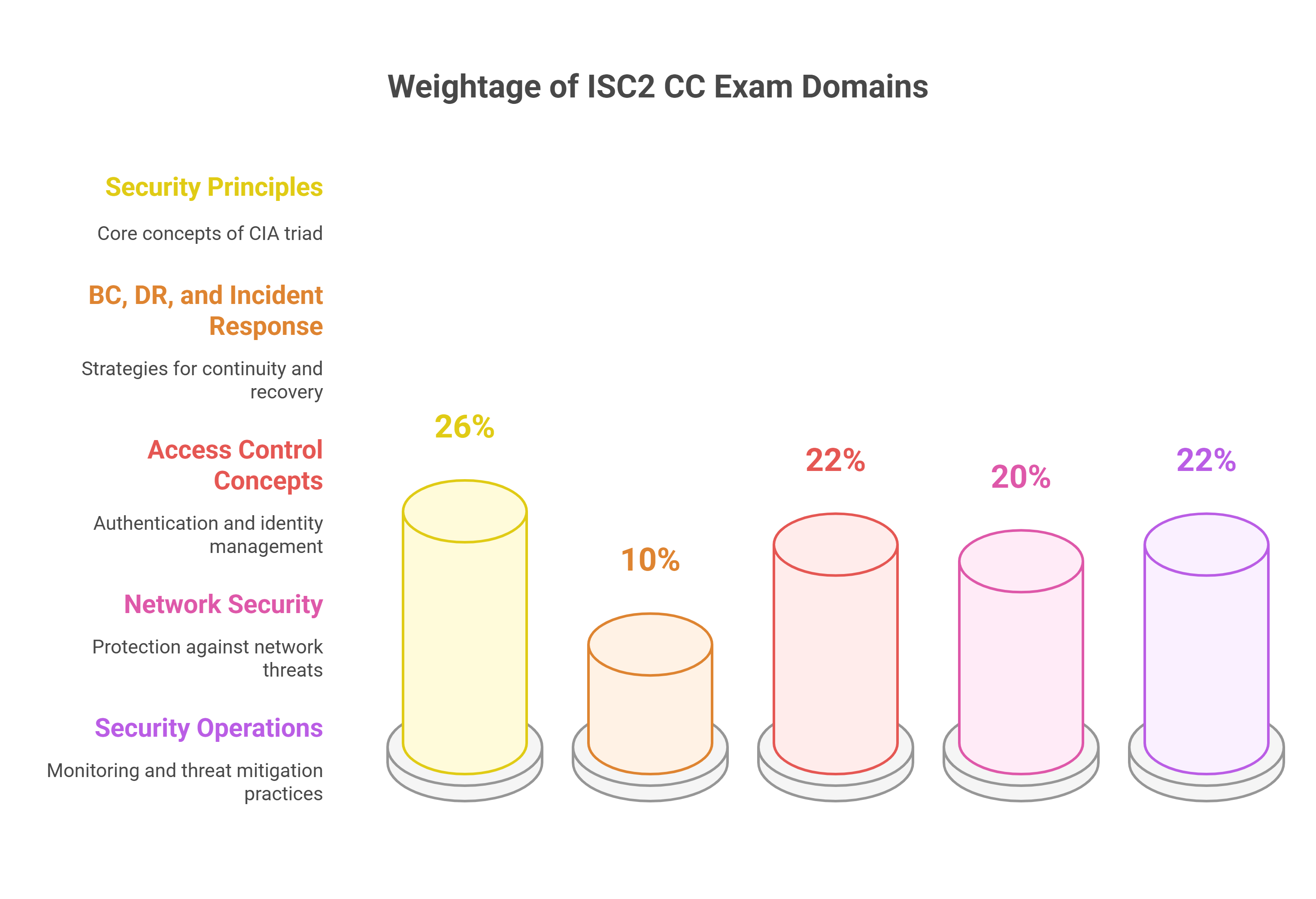
How Tough Is the ISC2 CC Exam?
If you’re wondering whether the ISC2 CC exam is tough, the answer depends on your background. If you have zero IT experience, you might find it challenging, especially the network security section. But if you’ve dabbled in IT or security before, it’s more about understanding the core principles rather than diving into technical details.
The exam is 100 multiple-choice questions, and you get two hours to finish it. You need a score of 700 out of 1000 to pass. The questions are straightforward but can be tricky if you’re not familiar with cybersecurity concepts. Expect scenario-based questions that test your ability to think through security challenges rather than just memorize facts.
For someone with a bit of tech experience, the exam could feel easier compared to more technical certs like Security+. But for total beginners, it might take some serious studying to grasp the key ideas.
What Makes ISC2 CC a Good Choice?
- No Prior Experience Required – Unlike some other certs, you don’t need IT experience to take this one.
- Affordable Option – It’s relatively budget-friendly compared to other security certs.
- Great First Step – If you’re planning to go for CISSP down the road, this cert gives you a head start.
- Employer Recognition – Many organizations value ISC2 certs, and having CC can help you get entry-level roles faster.
If you’re preparing for this credential, don’t miss our step-by-step resource on how to pass the ISC2 CC exam with confidence.
Breaking Down Security+: What to Expect?
If you’re aiming to get into cybersecurity and want something that covers a bit of everything, CompTIA Security+ might be on your radar. It’s one of the most well-known entry-level certs out there, and for a good reason, it sets the foundation for handling real-world security tasks, making it a solid choice for IT professionals looking to specialize in security.
What Security+ Is Designed For?
Security+ is built for those who already have some IT knowledge and want to transition into cybersecurity roles. It focuses on the technical side of security, covering key concepts like network security, risk management, and incident response.
It’s especially popular among those looking to meet government and compliance standards, like the U.S. Department of Defense (DoD 8570), which recognizes Security+ as a baseline requirement for many cybersecurity roles. If you’re eyeing a job in IT security, compliance, or even as a help desk technician with security responsibilities, Security+ can open doors.
- If Security+ is on your radar, our Ultimate SY0-701 Exam Preparation Guide will help you navigate the exam and boost your chances of success.
Who should consider Security+?
- IT professionals looking to move into cybersecurity roles
- Individuals with basic networking and system knowledge
- Those aiming for compliance-related jobs in government sectors
- Anyone wanting a vendor-neutral cert that applies to different security environments
Unlike ISC2 CC, which is more theory-based, Security+ puts a stronger focus on practical security skills, making it a better fit for hands-on roles in IT security.
Domains Covered in the Exam
The Security+ exam isn’t just about memorizing facts; it’s structured around real-world cybersecurity tasks. It’s split into five main areas, each covering different aspects of security:
- Attacks, Threats, and Vulnerabilities (24%)
- Different types of attacks (malware, social engineering, DoS/DDoS)
- Threat intelligence and sources
- Vulnerability scanning and penetration testing basics
- Architecture and Design (21%)
- Secure network design principles
- Cloud security concepts
- Best practices for securing applications and embedded systems
- Implementation (25%)
- Secure protocols and network security tools with physical access controls
- Identity and access management (IAM) techniques
- Encryption and cryptographic solutions and computer networking
- Operations and Incident Response (16%)
- Monitoring and detection tools
- Incident response steps and processes
- Digital forensics basics
- Governance, Risk, and Compliance (14%)
- Risk management strategies
- Security policies and regulatory requirements (GDPR, HIPAA, PCI-DSS)
- Business continuity and disaster recovery planning
Each of these sections tests both theoretical and practical knowledge, making Security+ a well-rounded cert that covers essential cybersecurity concepts and functions from different angles.
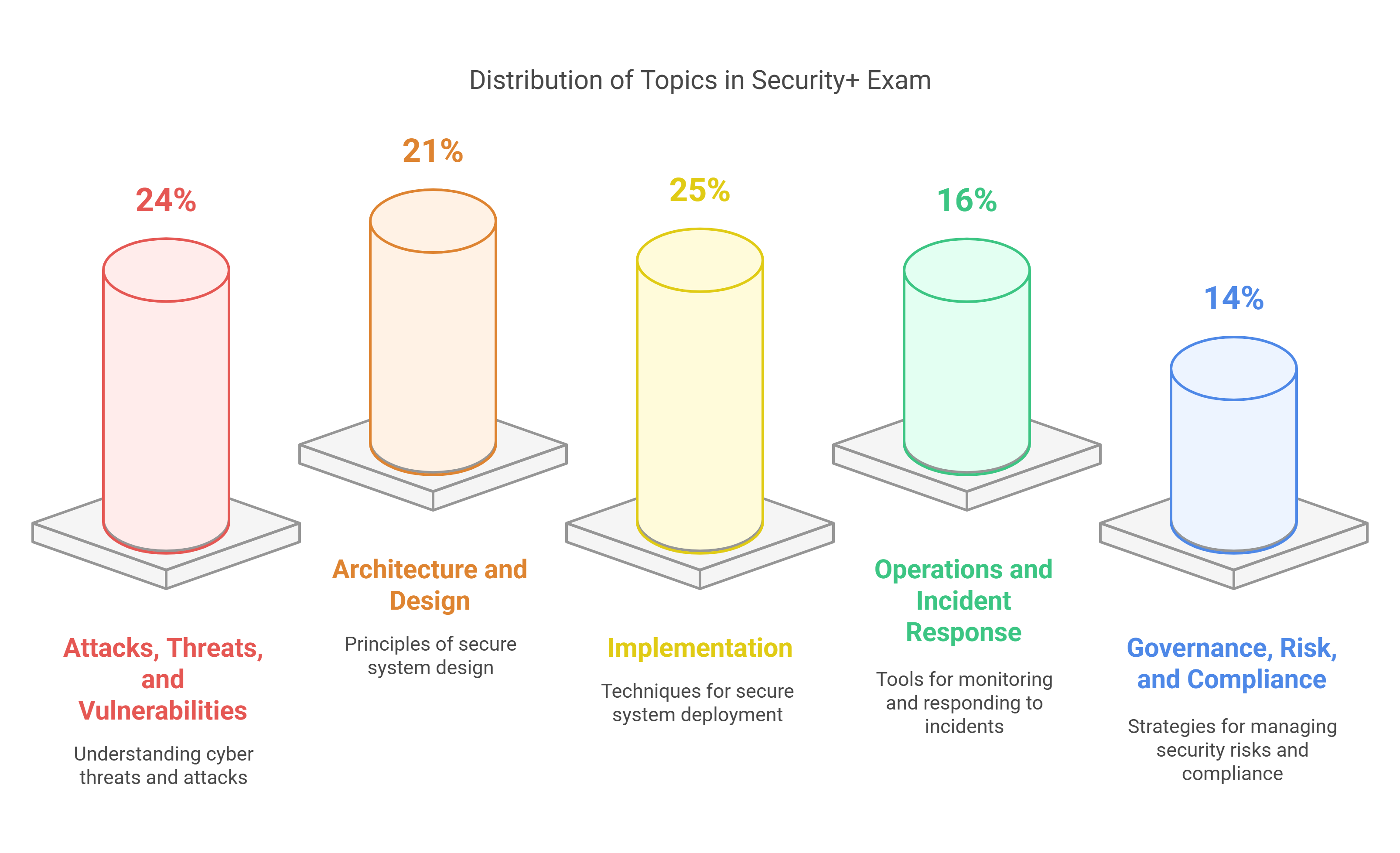
Exam Format and Difficulty Level
The Security+ exam is designed to test your understanding in a way that mimics real-world situations. You’ll encounter performance-based questions (PBQs) that require you to perform specific security-related tasks, along with traditional multiple-choice questions.
Security+ is often considered tougher than security and ISC2 CC exam format, due to its more technical focus. Some of the PBQs require critical thinking and hands-on knowledge, which can be challenging for those with little practical experience.
However, if you’ve worked with networking, system administration, or even help desk support, many of the concepts might already be familiar. Security+ demands a solid understanding of security concepts and how they apply in real environments, so it’s not something you can just memorize and pass, you need to grasp the practical side as well.
For those completely new to IT security, the exam might feel overwhelming, but with consistent study and hands-on practice, it’s achievable.
Comparing the Two: Which Exam Is Right for You?
Choosing between ISC2 CC and CompTIA Security+ can be tricky, especially if you’re new to cybersecurity. Both certs aim to provide a solid foundation, but they focus on different aspects of security and suit different career goals. Let’s break things down to help you figure out which one fits you better.
Security Vs CC Exam Format Comparison
While both certs cover cybersecurity fundamentals, their structure and testing formats are quite different. Understanding these details can help you decide which exam suits your learning style and experience level.
Number of Questions, Exam Duration, Passing Score
- ISC2 CC:
- 100 multiple-choice questions
- Duration: 2 hours
- Passing Score: 700 out of 1000
- Format: Simple, straightforward questions focusing on concepts rather than application
- Security+:
- Up to 90 questions (mix of multiple-choice + performance-based questions)
- Duration: 90 minutes
- Passing Score: 750 out of 900
- Format: More complex, includes scenario-based questions requiring hands-on problem-solving
Question Types and Testing Environments
ISC2 CC sticks to standard multiple-choice questions that test your understanding of fundamental security principles and concepts. It’s more about knowing definitions and principles rather than applying them.
Security+, however, throws in performance-based questions (PBQs), where you might have to configure a firewall, analyze a security incident, or troubleshoot a network security issue. This makes it more practical and hands-on.
Both exams are conducted in proctored environments, either online or in-person at approved testing centers.
Practical vs Theoretical Knowledge Comparison
ISC2 CC leans more on theoretical knowledge, making it a great starting point for complete beginners. It’s an entry-level cert that introduces key concepts but doesn’t require deep technical skills.
Security+, on the other hand, focuses on practical skills like threat management, incident response, and secure network configuration. If you’re aiming for roles that involve hands-on work, Security+ offers better preparation.
Difficulty Levels: Is ISC2 CC Harder Than Security+?
The difficulty of each exam depends largely on your background and experience.
Complexity of Exam Questions
- ISC2 CC: Questions are more concept-based, requiring an understanding of security principles rather than problem-solving skills. It’s easier for those new to cybersecurity.
- Security+: Includes both theoretical and hands-on elements. The PBQs can be challenging if you don’t have prior technical experience.
How Long It Takes to Prepare for Each
Preparation times can vary based on prior knowledge, but generally:
- ISC2 CC: 2-4 weeks if you study consistently, especially if you have some basic IT knowledge.
- Security+: 6-8 weeks or longer, depending on your familiarity with IT and security concepts. The hands-on elements require more practice.
If you’re new to security, ISC2 CC may feel easier and more manageable, while Security+ might require deeper commitment and hands-on experience.
Cost Breakdown: Which Is More Budget-Friendly?
Cost is an important factor, especially if you’re paying out of pocket. Here’s how both certs compare when it comes to exam fees and other costs.
Exam Fees and Additional Costs
- ISC2 CC:
- Exam fee: $199 USD
- Retake fee: Same as the initial fee
- Study materials: ISC2 offers free self-paced training, so you can keep costs low
- Security+:
- Exam fee: $392 USD
- Retake fee: Full exam fee applies
- Study materials: Additional costs for books, courses, and practice tests can add up (often $100-$300)
ISC2 CC is clearly the cheaper option, making it a better choice for those on a tight budget.
Ongoing Renewal Costs and Requirements
Both certs require continuing education to stay valid, but the renewal process and costs differ.
- ISC2 CC:
- Renewal fee: $50 per year
- Continuing Professional Education (CPE) credits: 45 credits over 3 years
- Must remain an ISC2 member to keep certification active
- Security+:
- Renewal fee: $50 per year (3-year cycle)
- Continuing Education Units (CEUs): 50 credits required over 3 years
- Various ways to earn CEUs, including higher certs and work experience
Security+ has slightly higher renewal requirements but offers flexibility in how you earn credits. ISC2 CC is cheaper in the long run but requires ongoing membership fees.
Which One Should You Choose?
Still not sure? Here’s a simple way to decide:
- Pick ISC2 CC if you’re just starting, have little to no IT experience, and want an affordable cert that introduces you to cybersecurity fundamentals. It’s a great stepping stone to higher-level certs like CISSP.
- Choose Security+ if you have some IT background, want to work in hands-on security roles, and need a cert that’s recognized by employers worldwide, especially in government or compliance-focused jobs.
In the end, both certs can help you break into the cybersecurity industry. It’s just about choosing the one that aligns best with your experience and career goals.
Career Prospects: Which Opens More Doors?
Choosing between ISC2 CC and CompTIA Security+ isn’t just about passing an exam; it’s about where these certs can take you in your cybersecurity career. Both certifications can help you get started, but they differ in terms of career opportunities, salary potential, and long-term growth. Let’s break down what each certification offers in terms of job roles, industry demand, and earning potential.
To understand the earning potential and roles you can land, explore our detailed guide on ISC2 CC job roles and salary insights.
Salary Expectations: How Much Can You Earn?
Your earning potential with ISC2 CC or Security+ depends on factors like location, experience, and industry. While both certifications can help you land cybersecurity jobs, Security+ generally offers higher salary prospects, mainly because it’s been around longer and is more widely recognized by employers.
Average Salaries for ISC2 CC and Security+ Holders
- ISC2 CC: Since it’s a newer certification, salary data is still emerging. However, entry-level positions such as IT support with a security focus typically offer salaries in the range of $50,000 – $70,000 per year, depending on the job role and location.
- Security+: More established and recognized worldwide, Security+ holders can expect an average salary of $65,000 – $85,000 per year, with roles like security analyst or systems administrator offering higher earning potential.
Industries That Pay the Most
Some industries value cybersecurity certifications more than others, with sectors like finance, healthcare, and government offering higher pay.
- ISC2 CC fits well into industries that are willing to train security professionals from the ground up, such as education and small businesses with growing security needs.
- Security+ is widely accepted in government, defense, and corporate sectors where compliance with regulations like DoD 8570 is mandatory.
Job Roles: What Opportunities Come with Each?
Both certifications can help you break into cybersecurity, but the types of roles you can land vary based on the focus of each cert.
Common Positions You Can Land with Each Certification
With ISC2 CC, you can pursue roles such as:
- Security Operations Center (SOC) Analyst (Tier 1)
- IT Support Specialist with a security focus
- Junior Risk Analyst
- Security Compliance Assistant
With Security+, you’re likely to qualify for roles like:
- Security Analyst
- Network Administrator
- Systems Administrator with a security focus
- Cybersecurity Specialist
- Compliance Analyst
Entry-Level vs Advanced Career Options
- ISC2 CC is more of a beginner-friendly certification that helps you get your foot in the door. It’s a great starting point if you’re completely new to the field, but it may require further certifications to advance in your career.
- Security+ not only helps you enter the cybersecurity space but also positions you for mid-level roles faster, especially if you have prior IT experience.
Industry Demand: Which One Do Employers Prefer?
When it comes to hiring, employer preference often depends on the job role and sector. Security+ has been around longer and is often listed as a requirement in job postings, whereas ISC2 CC is gaining traction but isn’t yet as widely recognized.
Employer Preferences in Different Sectors
- Government and Defense: Security+ is often a requirement for positions due to compliance regulations (e.g., DoD 8570). ISC2 CC, being newer, isn’t as commonly requested yet.
- Corporate IT: Many companies are open to both ISC2 CC and Security+, with a preference for Security+ due to its practical focus.
- Healthcare and Finance: Security+ is generally preferred here due to the need for practical knowledge in handling data protection and compliance requirements.
Global and Regional Hiring Trends
Globally, Security+ enjoys higher demand due to its established reputation. It’s well recognized in North America, Europe, and parts of Asia. ISC2 CC is still growing in recognition but is expected to gain popularity, especially among employers and cybersecurity professionals who prefer ISC2’s certification pathway.
In regions like the US and Europe, where cybersecurity regulations are stringent, Security+ is often listed in job requirements. In emerging markets, ISC2 CC could provide an easier entry point due to lower costs and broad coverage of security basics.
Long-Term Growth: Where Each Certification Leads You
Thinking about the future is crucial when picking a cert. Both ISC2 CC and Security+ can lead to bigger opportunities, but the path forward looks different for each.
Opportunities for Specialization and Career Development
- ISC2 CC positions you well for pursuing advanced certs like CISSP (Certified Information Systems Security Professional), which is one of the most sought-after certifications in cybersecurity leadership roles.
- Security+ can lead you towards more technical certifications such as CySA+ (Cybersecurity Analyst) or PenTest+, which dive deeper into hands-on security skills.
How These Certs Fit Into a Long-Term Cybersecurity Career
If you’re planning to build a career focused on security program management and oversight, risk assessment, and compliance, ISC2 CC is a great stepping stone. It aligns with ISC2’s more advanced certs, making it easier to transition into roles that require a strategic approach to cybersecurity.
On the other hand, if your goal is to work in technical security roles like penetration testing or security operations, Security+ lays a strong foundation for specialized certs that focus more on technical skills.
Making the Right Choice for Your Career!
If you’re completely new to cybersecurity and want an affordable, simple cert to start with, ISC2 CC is a great pick. It’s also a good choice if you plan to pursue ISC2’s more advanced certs later.
But if you’re looking for a well-established, hands-on certification that opens up better-paying job opportunities faster, Security+ might be the better option. It provides a good mix of theory and practice and is widely recognized in job listings.
At the end of the day, your choice should depend on your career goals, current skill level, and the type of cybersecurity work you’re aiming for. Cert Empire supports you with the best exam dumps to help you prepare and confidently pass these exams. You can explore more about these certifications here:
1. ISC2 CC Exam Guide
2. CompTIA Security+ Exam Guide
FAQs
Is ISC2 CC better than Security+ for beginners?
ISC2 CC is better for complete beginners with little to no IT experience, while Security+ is ideal for those with some IT background looking to specialize in cybersecurity.
How long does it take to pass each exam?
ISC2 CC usually takes 2-4 weeks of study, while Security+ requires around 6-8 weeks due to its broader and more technical content.
Do employers prefer one over the other?
Employers in compliance-driven industries prefer Security+ due to its long-standing reputation, but ISC2 CC is gaining recognition as an entry-level cert.
Can I get a job with just one of these certifications?
Yes, both certs can help land entry-level roles, but Security+ may offer more immediate opportunities in technical positions.
Which certification has more global recognition?
Security+ has more global recognition, especially in government and corporate sectors, than isc2 cc certification while ISC2 CC is gradually becoming popular.

